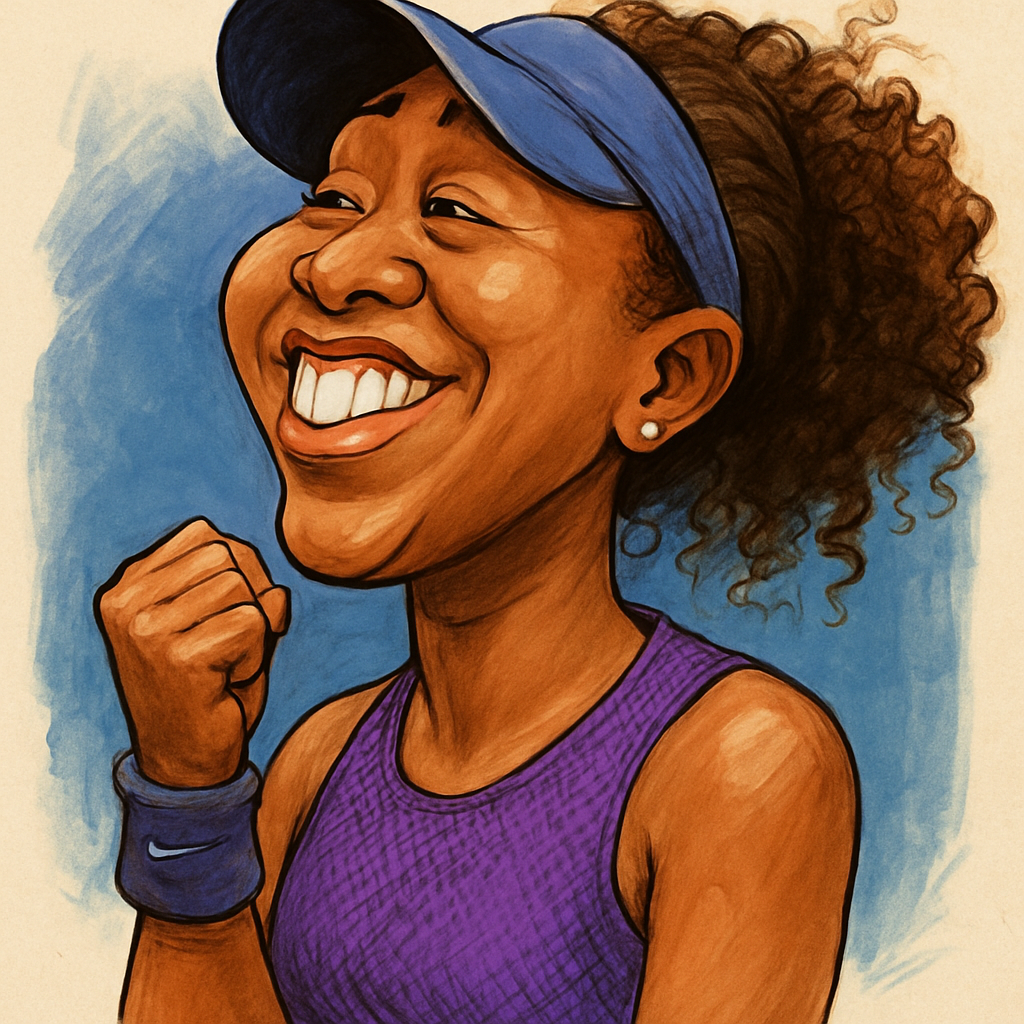NEW YORK — The transformation has been as swift as it has been stunning. Two months after a tearful and dispiriting first-round exit at Wimbledon, a visibly more joyful and resolute Naomi Osaka is surging through the draw at the US Open, her powerful game and competitive fire unmistakably back. The catalyst for this remarkable turnaround? A bespectacled, soft-spoken coach she affectionately calls her “teddy bear.”
That man is Wim Fissette, the renowned Belgian coach who has reunited with Osaka after a brief separation. Their renewed partnership, forged in the crucible of her recent struggles, is being credited with helping the four-time Grand Slam champion rediscover not only her formidable form but also her love for the game. The results are speaking for themselves on the hard courts of Flushing Meadows, where she is a two-time champion.
From Wimbledon Tears to New York Cheers
The low point came on the grass of the All England Club in July. Osaka, still working to find consistency after returning from maternity leave earlier in the year, fell in three sets to France’s Diane Parry. The loss was punctuated by a raw, emotional press conference where she confessed to the immense pressure she felt. "I feel like I was putting too much pressure on myself to win and to perform well," she said, her voice cracking.
It was a moment that could have broken a lesser competitor. Instead, Osaka used it as fuel. She immediately reached out to Fissette, with whom she had enjoyed tremendous success, including her second US Open title in 2020 and the 2021 Australian Open crown. Their split in 2022 was amicable, driven by her desire to step away from the sport. Now, she needed his steadying presence more than ever.
The "Teddy Bear" Effect: Stability and Strategy
Fissette, known for his analytical mind and calm demeanor, has been described by Osaka as the perfect counterbalance to her own intense nature. His nickname, “teddy bear,” speaks to the sense of safety and comfort he provides. But his impact is far from cuddly; it is strategically profound. He has worked to simplify her game plan and rebuild the confidence that seemed shaken.
The key adjustments since their reunion have been both technical and mental. Fissette has focused on:
- Re-establishing the dominance of her first serve, one of the most potent weapons in the women's game.
- Encouraging her to trust her groundstrokes and step into the court to dictate play with her punishing forehand.
- Reinforcing a positive mindset, focusing on one point at a time rather than the overwhelming weight of expectation.
Osaka has been effusive in her praise for his influence. "Wim is just so calming. He doesn't get too high or too low, and that really helps me stay centered," she explained after a recent win. "He believes in me so much, sometimes more than I believe in myself, and that's what you need from a coach."
A Formidable Force Re-emerges in New York
The evidence of their successful collaboration is clear in her US Open performances. The trademark power is back, with serves clocking over 115 mph and return winners flying off her racquet. More importantly, her body language has transformed. Where there was once frustration, there is now focused intensity. Where there was doubt, there is a renewed sense of belief.
In her third-round match, she dismantled a tough opponent with a display of tennis that harkened back to her championship years. She hit 34 winners and controlled the tempo from the baseline, a tactic Fissette has been emphasizing. "I'm just really enjoying myself out here," Osaka told the crowd with a genuine smile, a statement that seemed almost unthinkable just weeks ago.
More Than a Coach: A Partnership of Trust
The dynamic between Osaka and Fissette appears stronger than ever. Their time apart seems to have given them both a renewed appreciation for their partnership. Fissette understands the unique pressures that come with coaching a global icon who has been so open about her mental health journey. His approach is not about adding more pressure, but about creating a framework for her to thrive.
He has spoken about his role being that of a guide rather than a taskmaster. "My job is to help Naomi remember how great she is and to give her the tools to play that way," Fissette said recently. "The champion is still there. We are just removing the obstacles, one by one."
A Mojo Rediscovered, A Future Reignited
As the tournament progresses and the challenges grow steeper, the true test of this comeback will come. But regardless of the final result, something significant has already been achieved. Naomi Osaka has found her joy and her fighting spirit again. The journey back to the top of tennis is a long one, but she is no longer walking it alone.
With her "teddy bear" in her corner, providing strategic wisdom and emotional support, Osaka is once again playing with the freedom and ferocity that made her a champion. The mojo that seemed lost at Wimbledon has been emphatically rediscovered in New York, signaling to the tennis world that a resurgent Naomi Osaka is a force to be reckoned with once more.

